How algae research could help clean wastewater in the Middle East
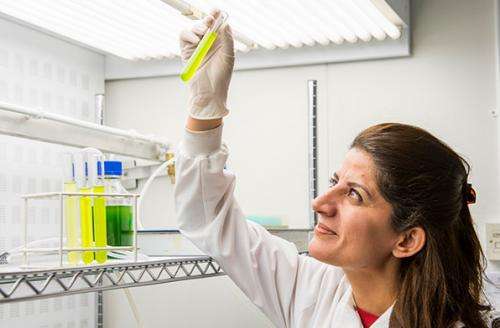
As one of the most water-poor countries in the world, Jordan's current water resources are significantly below the global water scarcity line. Annual rainfall falls under 50mm in 95% of the country and nearly all the groundwater sources are being seriously overexploited. Experts are warning that the country could soon face absolute water poverty.
Jordan's geographic location also means that refugee flow, reported in 2014 to be over 600,000, from Syria, Iraq and Palestine puts even more pressure on the chronically scarce resources.
New ways of cutting down water wastage and overuse are in desperate demand and high on the Jordanian government's agenda. This is what has brought Mais Sweiss to Bath.
"There is no one at my university in Jordan who does algae research and only a handful of people in the whole of Jordan doing research in this field", Mais says.
Building on Roman algae
Mais is drawing on the research of our Professor of Plant Molecular Biology, Rod Scott. In 2011, he led on a project looking at the algae that grow in the city's Roman Baths.
Rod's team was looking for an algae that would have the unique characteristics that enable its large scale use in biofuel production - enough easily retrievable cell oil and the ability to survive high temperatures.
Micro-algae is a diverse group of species with many potential applications beyond biofuel. Cleaning and improving the quality of wastewater is one of these - an application which, at the moment, remains an uncharted possibility in Jordan.
Mais' research is being funded by a Jordanian government scholarship. On her return, her plan is to establish an algae research lab at her home institution, Al Balqa' Applied University.
"I came here to learn - gain new expertise and skills so I can pass them onto my own students", she says.
"Good environment to learn"
A specific requirement for Mais' funding was to pursue a field of research which would bring something new to Jordan on her return. The cross-faculty algae research at Bath stood out as an ideal match for Mais' research interests.
"Jordan offers a good environment for growing algae - the light and the temperature are ideal. But the expertise isn't there yet. This is a good environment to learn", Mais says.
Dr Tom Arnot, Senior Lecturer at our Department of Chemical Engineering and Mais' co-supervisor, is leading a major collaboration with Wessex Water, which has resulted in the foundation of a new Water Innovation & Research Centre (WIRC @ Bath).
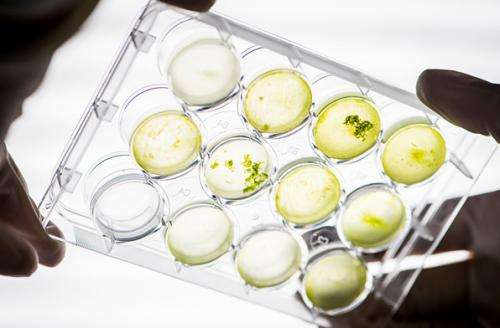
The newly launched centre draws expertise across various faculties and departments including Biology & Biochemistry, Chemical Engineering and Chemistry amongst others.
Mais has gained from the close industry collaboration by being able to sample algal species at various wastewater treatment works operated by Wessex Water.
Tom's existing links with Jordan have also proved useful.
"It was great to be able to help Mais organise an algae sampling trip to Jordan via my colleague Dr Murad Bino, Executive Director of the Inter-Islamic Network on Water Resources Development & Management, which is based in Amman, Jordan", he said.
"Mais is also clearly benefitting from working alongside other colleagues in WIRC @ Bath."
Reduced need for chemicals
In its current form, nutrient removal from water relies on chemical treatment and the process has a big carbon footprint.
The use of algae has the potential to address both these issues, but it would also introduce additional benefits - the biomass created as a by-product could be recycled back into agriculture as a fertiliser or used as a biofuel.
Using algae and wastewater samples from both UK and Jordan, Mais hopes to isolate native microalgae that have adapted to the local environment in Jordan.
Halfway through her PhD, she is already planning future work for when she arrives back in Jordan.
"I'm interested in genetically improving the algae strains for wastewater treatment and biofuel production, but also utilising algae to produce other high value products such as β- carotene, which is a precursor to vitamin A, and omega-3 fatty acids."
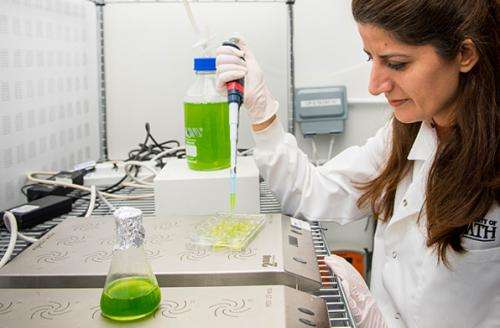
Importance of water research
In 2009, Mais' university opened a cross-faculty International Research Center for Water, Environment and Energy in co-operation with UNESCO.
Dr. Rakad Ayed Ta'any, the Director of the centre, comments on its website about the fundamental role research plays in the effective management of natural resources.
"Research institutions can provide technical and scientific information that should be the basis for policy and decision-makers and may contribute to building national capacities to ensure a sustainable management of these resources."
Mais' algae expertise developed in Bath will form an important part of this work and will have potential implications outside Jordan's borders.
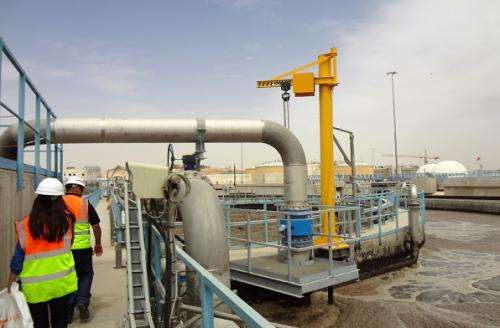
"Water resources in that part of the world are generally poor so if this can be applied in water treatment works in Jordan, it is likely to attract interest from other countries", Mais says.
Back home, Mais plans to continue the search for more local algae species and look at maximising their benefit by improving them genetically.
When she talks about her plans, it's not difficult to see how much importance she places on water and algae research.
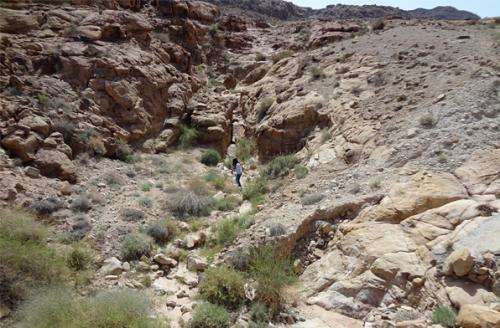
"If there is no water, there is no food", she says. "Finding new ways of reusing wastewater and improving its quality is absolutely essential."
"Water shortage means human suffering and can ultimately lead to wars."
Provided by University of Bath





















